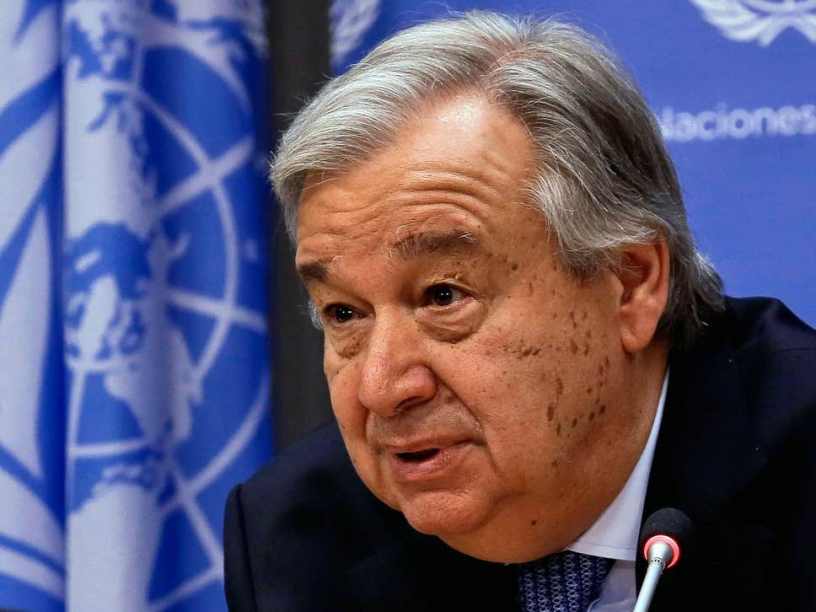The United Nations could run out of money by the end of the month as it faces a near-unprecedented funding crisis, the secretary-general has warned.
Almost a third of member states have not paid their annual dues leading to a £1.3 billion black hole, António Guterres said in a statement on Tuesday.
The shortage of cash has meant vital staff vacancies have been left empty, travel limited to all but essential journeys and meetings deferred amid attempts to shore up the dwindling reserves. Staff have been warned there may be a default on salaries in November.
The United Nations could run out of money by the end of the month as it faces a near-unprecedented funding crisis, the secretary-general has warned.
Almost a third of member states have not paid their annual dues leading to a £1.3 billion black hole, António Guterres said in a statement on Tuesday.
The shortage of cash has meant vital staff vacancies have been left empty, travel limited to all but essential journeys and meetings deferred amid attempts to shore up the dwindling reserves. Staff have been warned there may be a default on salaries in November.
He urged the 64 members who have not coughed up – from a total 193 – to do so “urgently and in full”. The appeal came during a committee meeting of the General Assembly on Tuesday morning.
But making the crisis explicit later in the day, Stéphane Dujarric, Mr Guterres’s spokesperson, told reporters that a “default…could risk disrupting operations globally.”
He added: “The secretary-general further asked governments to address the underlying reasons for the crisis and agree on measures to put the United Nations on a sound financial footing.”
He did not name the countries who had fallen into arrears or offer a reason why so many had failed to pay up.
But he said that, as of the end of September, only 70 per cent of the total memberships bills had been paid.
“To date, we have averted major disruptions to operations”, said the statement, but “these measures are no longer enough. The secretariat could face a default on salaries and payments for goods and services by the end of November unless more member states pay their budget dues in full.”
He added that the UN budget implementation was no longer being driven by planning, but according to “the availability of cash at hand…[which] undermines mandate delivery and goes against our efforts to focus less on inputs and more on results.”


